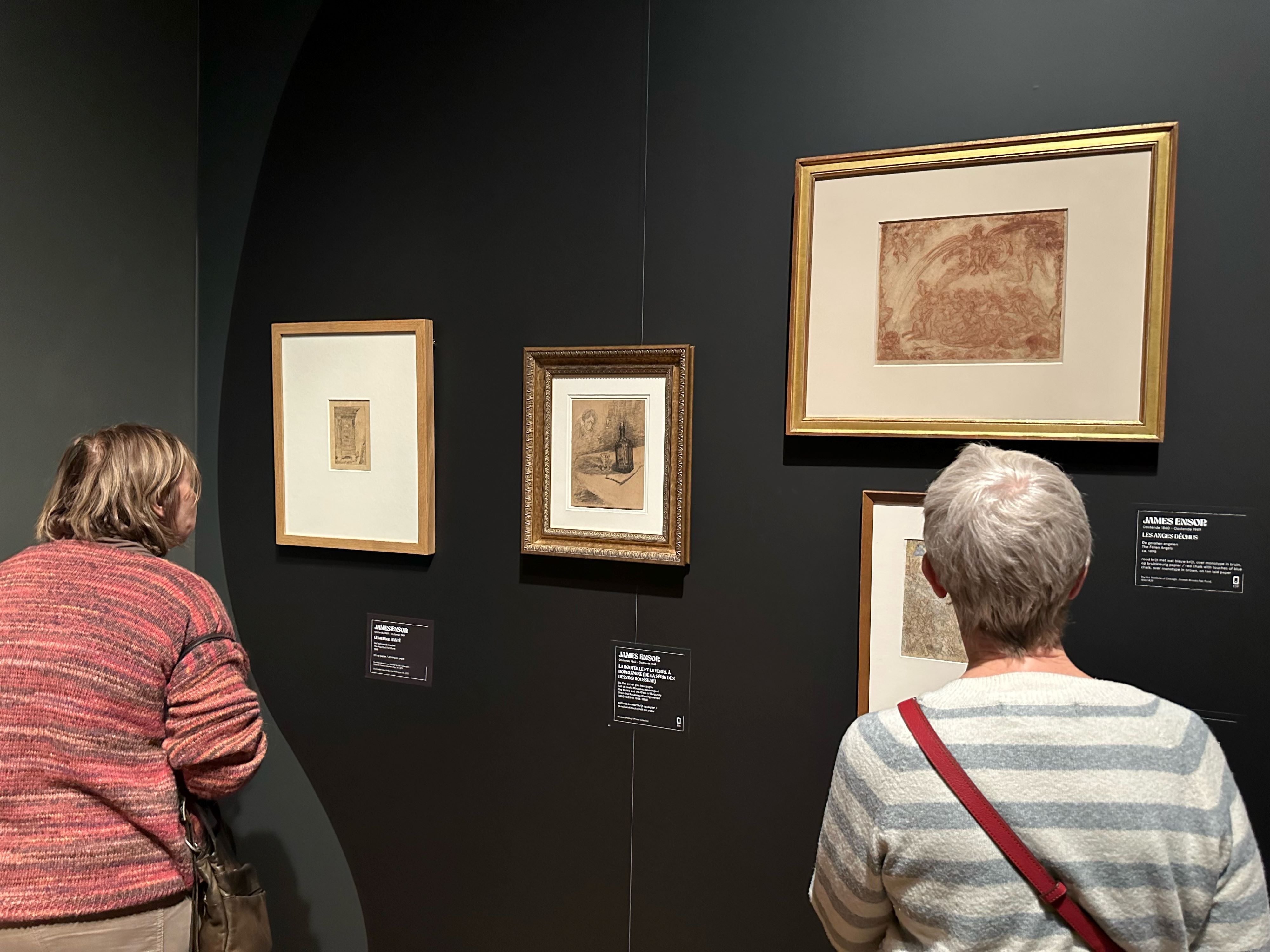Ensor etching found among charity shop donations

An etching by Belgian painter James Ensor has been found at a charity shop in Antwerp. The Kringwinkel is donating the etching, titled Le meuble hanté, to the Royal Museum of Fine Arts in Antwerp (KMSKA). It will immediately go on display in the exhibition Ensor’s Wildest Dreams: Beyond Impressionism, which runs until Sunday.
It is not known who donated the art work. “I was searching the central warehouse of Kringwinkel Antwerpen where all the items that are donated at drop-off points are collected,” said staff member Charlotte Pleysier.
“I came across the etching and it looked like something in the style of Ensor. The next day on my desk, I saw James Ensor’s signature. I jumped off my chair to inform my colleagues. We were all happy and surprised.”
Greater good
It was clear to Ensor experts that this was an authentic work, and Kringwinkel Antwerpen had to decide what to do with it. Director Kurt Van der Herten: “It’s our model to sell donated items, but we thought for a moment about the greater good here and a donation to KMSKA seemed appropriate. We didn’t want it to end up in the hands of individuals, we wanted to see it on display for a large audience.”
Le meuble hanté shows a young man in front of a cupboard from which a skeleton is emerging, and is typical of Ensor, says Herwig Todts of the KMSKA. “Not only does he use a recognisable type of paper, he was also in the habit of signing and dating his etchings in pencil afterwards.”
"We didn’t want it to end up in the hands of individuals, we wanted to see it on display for a large audience"
It was unveiled on Tuesday at the museum, in the presence of Flemish Culture minister Caroline Gennez. “It’s a fantastic day,” she said. “The Kringwinkel could have monetised this rare find, but through the beautiful gesture of donating it to KMSKA, now whole generations can continue to admire this Ensor.”
Kringwinkel employs more than 6,000 people in Flanders. Although finds such as the Ensor sets are exceptional, special pieces are sometimes discovered in the sorting process. Staff receive training to recognise valuable items.
© BELGA PHOTO / VIDEO MAARTEN WEYNANTS
Related news

